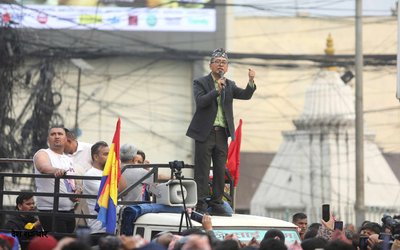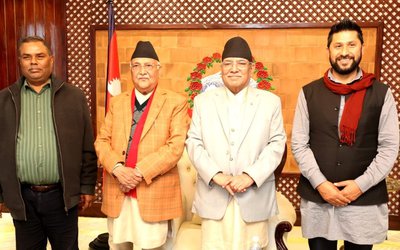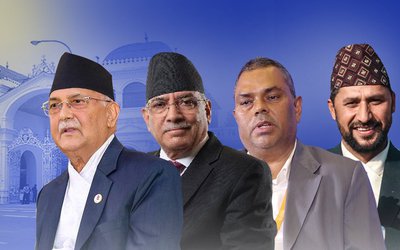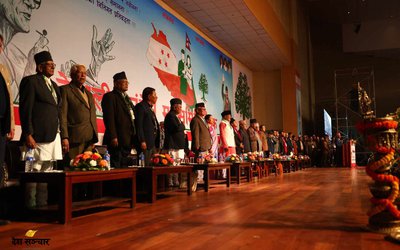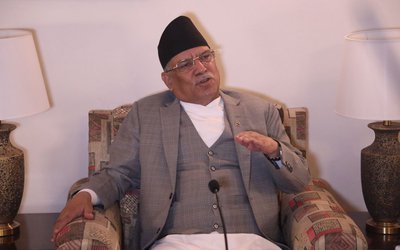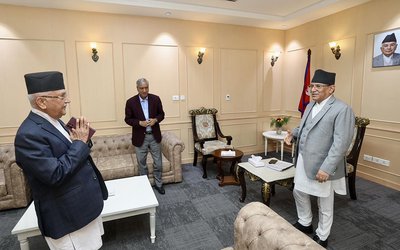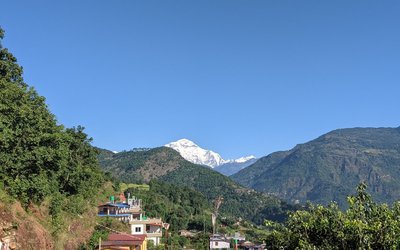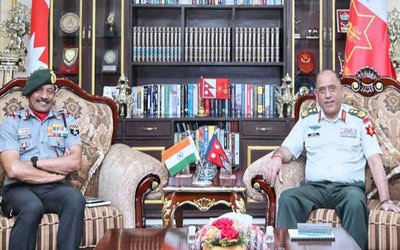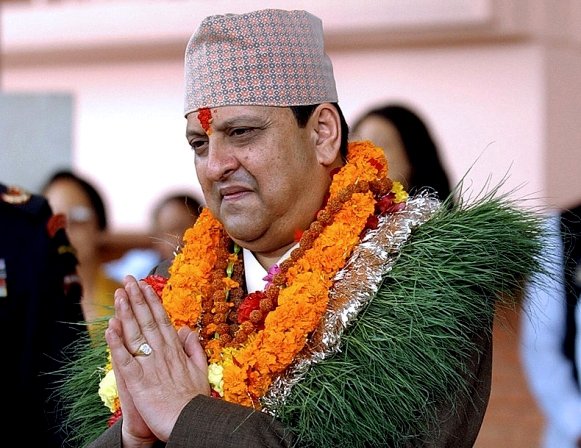
In his customary Bijaya Dashami address to the nation, former king said he was deeply troubled by the politicization of all the organs of the state. Before the key state actors and the representatives of three main political parties could respond to the statement, Chief Election Commissioner Ayodhi Prasad Yadav made an even more scathing remark against the government. The CEC accused the government of undermining the constitutional role of the Election Commission.
Yadav is understandably furious with the government for taking a series of decisions favoring the incumbent MPs and transferring key government officials after elections to the federal and provincial legislatures, due in November and December, were notified. However, the government did not anticipate that Yadav would vent his fury in public. It is a fact that almost all the constitutional organs of the state — from the apex judiciary to EC — are packed with party loyalists and sympathizers. The country’s three big parties — the Nepali Congress and the CPN (Maoist Centre) of the ruling coalition and the main opposition group, the Communist Party of Nepal-Unified Marxist Leninist — have a tacit understanding among them about sharing the posts.
These parties had threatened Shah in the past with arrest for his candid views, expressed mostly on formal occasions in the form of customary messages to the nation. However, Yadav heads a constitutional body and his words carry the weight of office. Yadav has said he will take “stern action against those guilty” after the Dashai festival. He also made his displeasure known to Prime Minister Sher Bahadur Deuba for expanding the cabinet — the sixth time in less than three months — after elections had been notified. The Dashai festival was over on Sunday.
Major political parties have been partners in crime and beneficiaries of corruption. That Yadav, who was appointed to EC on the CPN (Maoist Centre) quota, feels compelled to join issue with the government points to the frustration and anger among people at the state of public affairs.
The corruption in statecraft can be traced to 2006 when political parties, in the garb of overhauling old institutions, packed the judiciary, constitutional organs of the state, and diplomatic missions with their “loyalists”, many of them without the character and necessary qualifications for the jobs. People seem aware of the compromises made by the parties. This seems the reason why judges and other political-appointees to the constitutional bodies have become subjects of ridicule and condemnation in public and social media.
A former secretary of the government, known for his clean public image, wants the government to take into account the level of public fury and criticism and appoint a high-powered commission to probe the wealth of prime ministers, ministers and all those who have served in constitutional bodies in the past 11 years. Ministers taking arbitrary decisions and punishing law-abiding bureaucrats and refusing to be held accountable to the law of the country have become a common feature part of governance in Nepal. Recently, Sanjaya Gautam, director general of civil aviation, was arbitrarily transferred in violation of the code of conduct, after he defied political pressure and refused to favor a powerful businessman and power-broker in the proposed expansion of the Tribhuvan International Airport. The blatant cronyism of the politicians has alienated large sections of the people, who in the former king’s words “feel helpless in their own country”.
There is likely to be a change in environment when the term of the current parliament ends on October 22. The political establishment, which has threatened its critics in the judiciary and the anti-graft body with impeachment motions, will no longer be able to exert influence thereafter. CEC Yadav knows that he can at least tame the present government and political parties once the term of parliament ends. Given that political parties and leaders are unpopular and perceived as corrupt, any action by the CEC against them is likely to be endorsed by the public. The major political parties have a bumpy ride ahead as they face voters. The words of the former king may come to haunt them. Shah had warned that “some external forces are mobilizing their resources to weaken the sovereignty and integrity of the country, seeking to impose their own culture and religion replacing the indigenous culture, tradition and moral values of Nepal” and called the people to ask the parties to explain their conduct.
Politicians, barring a few exceptions, are not a popular breed anywhere in the world. However, this may be the first time in a decade in Nepal that they will realize that “immunity” from penal action for crimes including corruption is not always possible in a democracy. If politicians are punished, “punitive action” against the judiciary, which is today seen as an extension of the executive and political parties, may soon follow.
Courtesy: The Indian Express
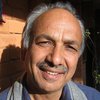
Yubaraj Ghimire
Ghimire is a Kathmandu based journalist.
- Why ‘Revolutionary’ Communist PM Prachanda Went To Temples In India
- Jun 08, 2023
- Why China Is Happy With Nepal’s New PM
- Jan 03, 2023
- Prachanda Sworn In As PM: New Tie-ups In Nepal, Concern In India
- Dec 27, 2022
- Young TV Anchor As Its Face, RSP Rise Takes Nepal By Surprise
- Nov 23, 2022
- Nepal Votes, Why The Verdict May Not Make New Delhi Very Happy
- Nov 23, 2022

